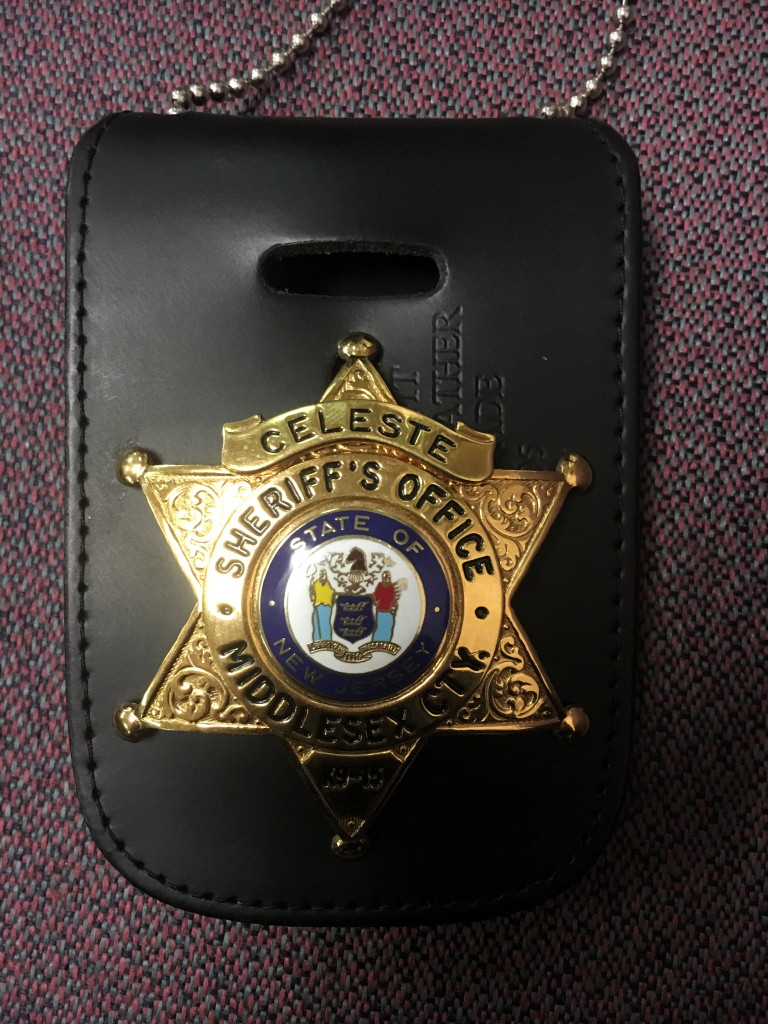SAYREVILLE – A Cub Scout pack based in Sayreville had the opportunity to meet police dogs and learn about how they help the community.
Ralph Morales and Jeff Bell of the Middlesex County Sheriff’s Office K-9 Unit appeared before St. Bernadette’s Cub Scout Pack 101 on April 28.
Morales and Bell said they are two of the three handlers of the K-9 unit and their dogs handle explosives detection. The third handler, who was not present, owns the dog responsible for narcotics detection.
Morales and Bell informed the scouts that they use dogs who were unable to complete a seeing eye program in Morristown. They explained that the dogs did not pass the program due to having too much energy, which made them ideal police dogs.
“We are looking for the dog that won’t stop playing,” Morales said. “We want the dog who’s playing all the time.”
All the dogs in the K-9 unit are German shepherds. Morales said other large breeds can be used, but smaller dogs would not work because they need stamina to complete searches.
According to Morales and Bell, the dogs need to know 33 odors to be certified as an explosives detection dog and seven odors to be certified as a narcotics detection dog. The K-9 unit is also in contact with federal agencies in case they need to the dogs to learn new odors.
“Dogs’ noses are so good, they can separate each ingredient of a pizza,” Morales said.
When members of the unit, the dogs’ only toy is a towel, which the handlers use to play both fetch and tug-of-war with the dogs.
Bell explained that the dogs are first trained to find their towel when it has the odor of black powder, resulting in the dog associating the smell of black powder with the towel. The officers then hide a towel with the odor and fake a throw with a clean towel, causing the dog to search the area and pinpoint the location of the towel through its odor.
“Why is this important?” Bell said. “This is the first time the dogs find the towel with their nose.”
The dogs are then trained to find an ammo can containing the black power odor and to sit when they detect the odor. Within six to seven weeks, Bell said the dogs are imprinted on the odors.
“The dogs need us to put them in the best position,” he said.
The handlers have a four-part test, where they conduct a search for an explosive device in a classroom, in a vehicle, in a field and in a box. Morales informed the scouts that the handlers have to recognize their dogs’ behavior with detecting explosive devices. Once the handlers pass all four tests, the handlers are certified to work with their dogs. Each dog, Morales explained, is licensed to only one handler.
“We are the only ones who can work with our dogs,” Morales said.
As a result of the dogs only being allowed to work with a specific handler, the dogs are not used if the handler is unavailable. When they retire, Bell and Morales stated the dogs live with their handlers.
To demonstrate how the dogs behave, Morales’ dog Celeste conducted a search of the room she was in. When Celeste detected an odor the handlers placed in the cabinet, she sat down and was given her towel as a reward.
In a real-life scenario, Bell and Morales said if the odor of an explosive is detected, the work of the handler and the dog is complete and the New Jersey State Police is contacted to disarm the explosive.
“We literally trust these dogs with our lives,” Morales said, who informed the students that the handlers will open a container if their dog does not detect an explosive odor.
Both Morales and Bell spoke highly of their jobs as handlers in the K-9 unit, noting 70 applicants applied for one opening in the unit.
“I don’t want to take days off,” Morales said.
“This is the best job to have,” Bell said. “I wouldn’t trade this for anything.”
Contact Matthew Sockol at [email protected].

